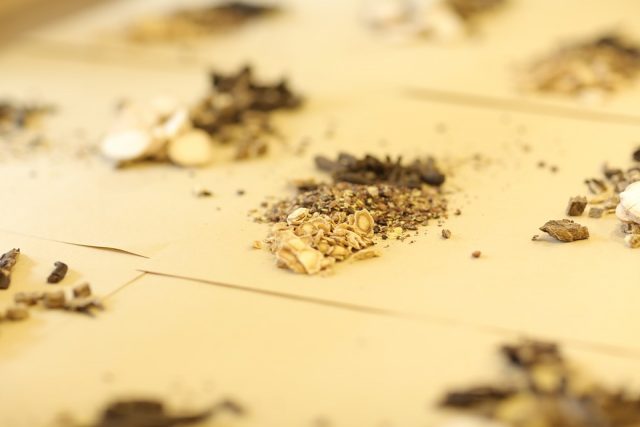Using Essential Oils to Cope With Chronic Illness

This article is written by Eric Suh.
The use of plants for health and medicinal purposes has been practiced for thousands of years from various different countries. There’s been an estimated 35,000 to 70,000 species of plants that have been used in some culture for medicinal use. It’s not surprising that many countries incorporate medicinal plants and herbs into their pharmaceutical market – China reported to have medicinal plants included in 33.1% of their pharmaceutical market.
While herbal remedies are often turned to as an alternative form of medicine that is less viable compared to the traditional drug therapy found in western medicine, The World Health Organization (WHO) themselves have established their stance on herbal medicine since the early 1980’s when they established a department within their governing body to recognize and manage medicinal plants in the healthcare system.
Fully recognized for the importance in healing, intervention using herbal medicine has grown to demand a comprehensive program for identification, evaluation, preparation, cultivation, and application of herbal remedies.
Herbal medicine includes any and all naturally occurring, plant-based substances that can be used to treat a physical ailment or condition. Remedies typically include a concoction of plant seeds, berries, roots, leaves, bark, flowers, and more. Certain items used are as common as garlic or ginger while other plants are used specifically for only one type of condition such as milk thistle. Regardless of whatever is used, herbal medicine ultimately enhances the natural healing capability of your body to result in improved health.
Unfortunately, herbal medicine is often passed over in the common healthcare regiment found in the United States. While it is not recommended to completely replace your treatment therapy with herbal medicine by itself, everyone can benefit from supplementing their health with the natural, holistic healing powers of herbal remedies.
In fact, some of the most effective and significant results have been found for extremely commonly found conditions. If you are experiencing any of the conditions below and have yet to give herbal medicine a try, continue reading to learn when you could opt for herbal medicine.

Symptoms experienced by women who are undergoing the menopausal transition can be difficult to cope with for women. Incidences of hot flashes, night sweats, palpitations, and even depression were found in nearly 57% of responded in a UK survey of over 8000 women.
While common treatment methods of hormone replacement therapy (HRT) have been found to help, prolonged use of HRT has been shown to be associated with increased risk of breast cancer and cardiovascular disease.
The Oxford Academic Family Practice conducted a pilot prospective, randomized controlled trial of forty five women that were randomized into three groups for five months. After following for five months, subjects that received treatment from herbal practitioners showed statistically and clinically significant reduction in menopausal symptoms including hot flash scores and increased in libido.
Out of the measured effects, the medicinal herbs Black cohosh and Red clover were shown to have significant results in treatment of menopausal symptoms. These two common herbal ingredients can be easily incorporated into an herbal remedy by a licensed acupuncturist to aid in your menopausal symptoms.
If you are currently experiencing menopausal symptoms, opting for herbal medicine to address some of the uncomfortable symptoms will help you restore you normalcy and quality of life.

Type 2 diabetes mellitus (T2DM) is one of the most rapidly growing non-communicable diseases in the United States. The Center for Disease Control (CDC) estimated that 25.8 million American suffer from T2DM. This chronic illness, caused by systemic endocrine dysfunction, is associated with numerous acute comorbidities and damaging conditions including nerve damage, foot problems, atherosclerosis, and retinopathy.
Traditional Chinese Medicine (TCM) and herbal medicine counteracts many of the difficulties that current medications encounter such as cost of medication and harmful side effects (weight gain, bone loss, increased risk of cardiovascular events).*
Four of the most common and powerful herbal remedies (that have shown statistical significance for treatment against T2DM) include:
It’s clear and widely accepted that many TCM herbs induce biological interactions that cause anti-diabetic reactions while keeping the harmful side effects associated with drug therapy at bay. If you or a loved one are suffering from type 2 diabetes, an herbal remedy treatment plan may be just what you need to avoid harmful side effects while maintaining a high quality of life with Type 2 Diabetes Mellitus.
* Source: AHFS Drug Information. Authority of the Board of the American Society of Health-System Pharamcists. Bethesda, Md, USA: American Hospital Formulary Service; 2012.

IBS is one of those things that seems insignificant to those who have never experienced it, but excruciating and overwhelming to those who have. With up to 20% of the Western population experiencing some form of IBS, therapy methods are constantly being explored.
Home intervention methods are usually multi-faceted and include a combination of education, dietary changes, physical exercise, and stress management. For those with more severe levels of discomfort, pharmacological intervention methods are often used such as proton pump inhibitors, prokinetic drugs, and antibiotics.
Solutions exist for the most severe levels of IBS, but are limited to invasive surgery to attack the structural obstructions and issues along the gastrointestinal pathway.
Unfortunately, TCM and herbal medicine is often turned to as a last resort option when in reality they are practices show the most effective results for those who use herbal remedies consistently for extended periods of time.
One particular herbal combination preparation STW 5 has been tested and proven result in improvement of gastrointestinal disorders of both the upper and lower abdomen. This herbal combination typically includes extracts from:
Granted, complications of gastrointestinal tract are rarely solved with one isolated type of treatment. Proper management usually incorporates a multitude of interventions from non-pharmacological, drug therapy, and herbal remedies.
If you are currently suffering from chronic gastrointestinal discomfort, opting for herbal remedies will enhance your body’s natural ability to return to a level of clear digestion.
Menopause, Type 2 Diabetes, and Irritable Bowel Syndrome are three conditions that affect so many of us and continues to plague victims everyday. When traditional drug therapy doesn’t provide relief or the results that you are hoping for, living with any of these three chronic conditions can be extremely frustrating and damage your quality of life.
Don’t live another day in discomfort or pain if you are experiencing any of the three above mentioned conditions. Contact your local acupuncturist or seek out a Traditional Chinese Medicine practitioner and inquire about the healing capability that herbal medicine offers.
Author Bio: Eric Suh, MPH is a database marketing analyst and the owner of Evergrowth Digital Marketing Agency. The above article was adapted from a direct consultation and interview of Dr. Bruce Suh, L.Ac who is a licensed acupuncturist and owner of Suh Acupuncture Clinic in Los Angeles, California.
If you enjoyed reading this article, you might also like: